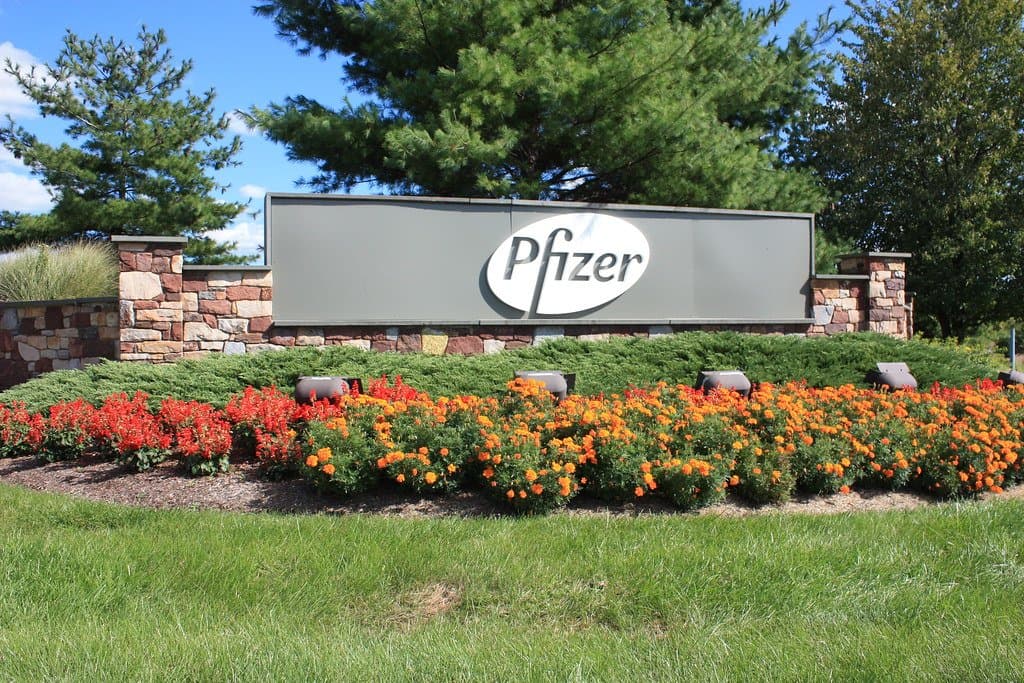Pfizer’s $4.9 Billion Bet on Metsera’s Weight-Loss Innovation
Explore Pfizer’s strategic acquisition of Metsera, a weight-loss drug developer, and uncover how this $4.9 billion move reshapes the obesity treatment market and biotech innovation landscape.

Key Takeaways
- Pfizer acquires Metsera for up to $4.9 billion to expand weight-loss drug portfolio
- Metsera’s late-stage drug candidates offer quick market entry for Pfizer
- Deal aims to diversify Pfizer’s revenue amid patent expirations
- Acquisition signals rising competition and R&D in obesity and metabolic therapies
- Pfizer’s move aligns with growing global demand for effective weight-loss treatments

Pfizer is making a bold move in the pharmaceutical world by acquiring Metsera, a developer specializing in weight-loss drugs, for up to $4.9 billion. This deal, expected to close by late 2025, is more than just a transaction—it’s Pfizer’s strategic leap into a booming market driven by rising obesity rates worldwide.
Metsera’s innovative pipeline, featuring late-stage candidates in weight management and metabolic diseases, offers Pfizer a fast track to new therapies. This acquisition not only fills gaps in Pfizer’s portfolio but also diversifies its revenue streams amid looming patent expirations.
In this article, we’ll unpack Pfizer’s acquisition strategy, the financial stakes involved, and what this means for the biotech industry and patients globally. Get ready to see how one deal could reshape the future of weight-loss drug development.
Expanding Pfizer’s Portfolio
Imagine Pfizer’s current lineup as a well-stocked pantry, but with a few key ingredients missing. Enter Metsera, bringing fresh, innovative weight-loss therapies to the table. Pfizer’s acquisition is designed to fill these gaps, especially in high-demand areas like weight management, gene therapy, and rare diseases.
This isn’t just about adding new products; it’s about creating a comprehensive health solution that spans vaccines, chronic disease care, and consumer health. Metsera’s late-stage drug candidates offer Pfizer a shortcut to market, bypassing years of development. That’s like finding a nearly finished recipe instead of starting from scratch.
For Pfizer, this means diversifying revenue streams and reducing reliance on older drugs facing patent cliffs. It’s a strategic pivot to stay relevant and competitive in a fast-evolving biotech landscape.
Financial Stakes and Market Impact
A $4.9 billion price tag isn’t pocket change—it’s a hefty investment reflecting the value Pfizer sees in Metsera’s assets. The deal’s success hinges on Pfizer’s ability to integrate Metsera’s portfolio and secure regulatory approvals. Think of it as a high-stakes chess game where every move counts.
Historically, Pfizer’s acquisitions like Lyrica and Ibrance have boosted investor confidence and diversified income. This track record adds a layer of optimism, but the risk of overpaying looms if Metsera’s candidates don’t deliver.
For shareholders, the potential payoff is significant if even one drug hits the market successfully. The biotech sector watches closely, as this deal sets a new benchmark for valuing innovative companies with near-approval therapies.
Driving Biotech Innovation Competition
Pfizer’s move sends a clear message: the race for cutting-edge weight-loss and metabolic disorder therapies is heating up. This acquisition is likely to spark similar bids from rivals eager to secure their own innovation pipelines.
Increased competition often means more R&D dollars flowing into the sector, accelerating the pace of breakthroughs. For startups and smaller biotech firms, valuations may climb as big players chase promising late-stage candidates.
This dynamic reshapes the biotech landscape, turning weight-loss drug development into a fiercely contested arena where innovation is the currency.
Addressing Global Weight-Loss Needs
Obesity rates are climbing worldwide, dragging along chronic health issues and ballooning healthcare costs. The demand for effective weight-loss treatments has never been higher.
Metsera’s focus on therapies for unmet medical needs aligns perfectly with this urgent market. Pfizer’s acquisition reflects a commitment not just to profit but to tackling a pressing public health challenge.
Moreover, Pfizer’s stated dedication to affordability and access suggests these new therapies might reach patients more equitably, influencing how regulators and the public perceive these innovations.
Shaping Pfizer’s Future Strategy
This acquisition isn’t a one-off—it’s part of Pfizer’s broader strategy to become a global health powerhouse. By integrating Metsera’s assets, Pfizer aims to offer a full spectrum of care, from prevention to chronic disease management.
The deal also helps Pfizer hedge against the inevitable revenue dips from patent expirations on older drugs. It’s like planting seeds today to harvest growth tomorrow.
As the transaction unfolds through 2025, all eyes will be on Pfizer’s execution. Success here could redefine the company’s trajectory and set a tone for innovation-driven growth across the pharmaceutical industry.
Long Story Short
Pfizer’s $4.9 billion acquisition of Metsera is a clear signal that the pharmaceutical giant is doubling down on innovation in weight-loss and metabolic therapies. By securing Metsera’s late-stage drug candidates, Pfizer positions itself to meet growing global health demands while cushioning against revenue risks from expiring patents. While the integration and regulatory hurdles remain, Pfizer’s track record with acquisitions suggests a calculated confidence in unlocking value from this deal. For the biotech sector, this move raises the stakes, likely accelerating competition and R&D investment in obesity treatments. For patients and healthcare systems, the promise of new, effective therapies could transform obesity management and related chronic diseases. Pfizer’s strategic bet on Metsera is more than a business play—it’s a step toward reshaping care for millions worldwide.